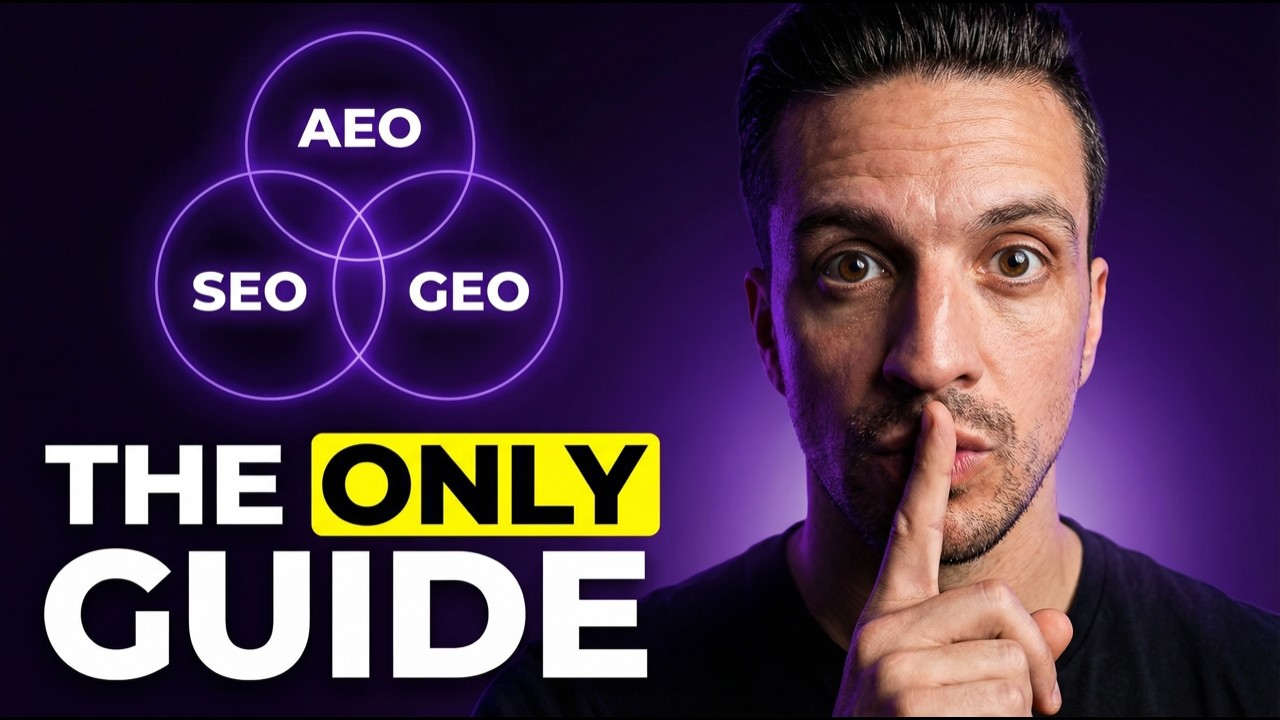
Understanding GEO Optimization
Heads-up, small business owners! If you’re trying to make some noise online, diving into Generative Engine Optimization (GEO) could be the trick. Let's talk shop about what GEO is and how it plays a different ballgame than your run-of-the-mill Search Engine Optimization (SEO).
Introduction to GEO
Generative Engine Optimization (GEO) is a fresh-out-of-the-oven strategy. It’s all about crafting content so AI-powered search engines gobble it up for spitting out answers to folks’ questions. You want your content to be the go-to choice when someone throws a question at their AI tools or chatty voice assistants. The idea is to create content that’s authoritative yet chummy, making it more likely to pop up as an AI response.
Nailing GEO optimization can put your business in the spotlight like never before. Think of it as making your stuff so slick and straightforward that AI systems can’t resist picking it for their answers.
AspectSEOGEOFocusClimbing the SERP chartsBeing the AI's top pick for answersToolsSearch engine robotsAI search engines, chit-chatty voice assistantsUsersClicks from search resultsInformative, chatty responses
Differentiating SEO and GEO
SEO and GEO might seem like twins at first glance, but dig a little deeper and you’ll see they’ve got their quirks. Traditional SEO is like the popular kid in school, always trying to get to the top of search engine result pages (SERPs). It throws around keywords, collects backlinks, and speeds up pages to get noticed by search engine algorithms.
GEO, though, ups the ante by making sure content is the AI’s favorite answer when someone’s looking for information. So, the content needs to be easy-peasy for AI search tools and virtual helpers to understand and use.
While SEO still earns its keep, GEO tunes into the high-tech vibes of today's AI-heavy info delivery. Knowing the ins and outs of these bad boys gives businesses a leg-up with modern trends and tech.
Curious about where search optimization is heading? Sniff around how to rank in generative engine optimization? and how to optimize for generative AI?.
If you're wondering if SEO is taking a backseat in the AI-era or if GEO's the new SEO sheriff in town, check out is seo dead with ai? and is geo replacing seo?. They've got the lowdown on the ever-shifting digital marketing scene.

Benefits of Using GEO
Generative Engine Optimization (GEO) is shaking things up in digital marketing. Small business owners who embrace GEO can snag some serious perks like grabbing more eyeballs online and pumping up their brand recognition.
More Eyes on Your Business
Think of GEO as SEO's cooler sidekick—not just about climbing to the top of search engine pages but making sure artificial intelligence picks your content as the go-to answer. That's the magic sauce for getting noticed more often. The more you're seen, the more potential customers you draw in.
Here's a simple breakdown comparing GEO and SEO:
StrategyMain AimBonus PerksTraditional SEOClimb SERP chartsNatural trafficGEOAI-picked contentBigger spotlightBoth TogetherSEO + GEO powerUltimate online exposure
Need some extra nuggets? Dive into our piece on what is generative engine optimization?.
Your Brand Gets Some Street Cred
GEO doesn’t just stop at boosting all the views—it gives your brand some serious credibility. When AI keeps picking your stuff as the top choice, folks start seeing you as a big deal. That’s trust and loyal fans in the making. While traditional SEO gets you seen, GEO adds another flavor to the mix, pushing your brand's presence up a notch.
Curious about how GEO fits into the bigger picture? Peek at our article on is geo replacing seo?.
Bringing GEO into your marketing toolkit gives your existing SEO a buddy, turbocharging your brand’s presence as things online keep changing. Hungry for more tips? Check out how to optimize for generative ai?.
Implementing GEO Strategies
Implementing strategies for Generative Engine Optimization (GEO) helps your content catch the eye of AI-driven search engines. Here’s a guide for small business owners to get it right.
Writing Clear and Direct Content
When you're churning out content, make it straightforward. AI bots love stuff that's easy to chew and regurgitate into user-friendly answers. Simplifying complex ideas isn’t just about impressing algorithms; it also makes your readers happy.
Tips for Crafting Simple Content:
Here's a small example to show what we're talking about:
**Complex:** Geo-tagging is a multifaceted process involving the addition of metadata to a digital photograph or video, encompassing geographical identification data.
**Simple:** Geo-tagging adds location info to your photos or videos.
Utilizing Structured Data
Want search engines to know what your site’s about at a glance? Use structured data. This helps AI find exactly what it needs to dish out spot-on answers during searches.
To give your webpage context, get cozy with schema markup. It's a nifty code language that explains the nitty-gritty to search engines. You can use it for all kinds of pages, whether you're selling products, writing articles, or showcasing your local coffee shop.
Structured Data in Action:
{
"@context": "http://schema.org",
"@type": "Article",
"headline": "How to Optimize for GEO",
"datePublished": "2023-10-01",
"author": {
"@type": "Person",
"name": "Jane Doe"
}
}Incorporating Q&A Sections
Spicing up your content with Q&A sections can give your GEO a real boost. These sections are a real hit with AI, as they help it find and showcase the details you're sharing.
Try to anticipate all those burning questions people might have on your topic, and serve up crisp, informative answers. This method not only helps SEO but also makes your content a go-to resource for AI-powered searching.
Q&A Section ExampleQuestion: How to optimize for GEO?'
Answer: To work the GEO magic, pen clear content, embrace structured data, and pop in Q&A sections. This makes it simpler and more relevant for AI engines.
Craving more GEO guidance? Dig into our resources on how to optimize for generative AI and how to rank in generative engine optimization.
By focusing on plain content, leveraging structured data, and setting up those lovable Q&A sections, small business owners can nail GEO strategies. These moves make sure AI searches won't pass by your content without saying hi. Dive deeper into GEO with our article what is generative engine optimization?.
Boosting Content for AI Search
If you're looking to get noticed by AI search, ya gotta spice up your content for generative engine optimization (GEO). This involves crafting stuff that's a piece of cake for AI to chew through while hitting just the right notes for niche folks.
Crafting Easy-to-Skim Content
To make your content easy for AI bots to zoom through and rank, here's what you might want to consider:
Content ElementsHow Important (1-5)Bullet Points5Headings/Subheadings4Short Paragraphs4Bold Text3
Zooming in on Niche Audiences with Long-Tail Questions
To strike the right chord with niche audiences, dig into long-tail questions. They're the nitty-gritty questions that your specific crew might be curious about. This move not only drags the right crowd but also keeps them hooked.
Pepper these questions throughout your write-ups to better nail down what your audience really needs. For more turbo-charged tips, check out our guides on how to optimize for generative AI and how to rank in generative engine optimization.
By following these tips, business owners can amp up their content game for AI search, giving their online presence a well-needed nudge. Dive into our detailed piece on is GEO replacing SEO? to see how GEO plays along with SEO.




